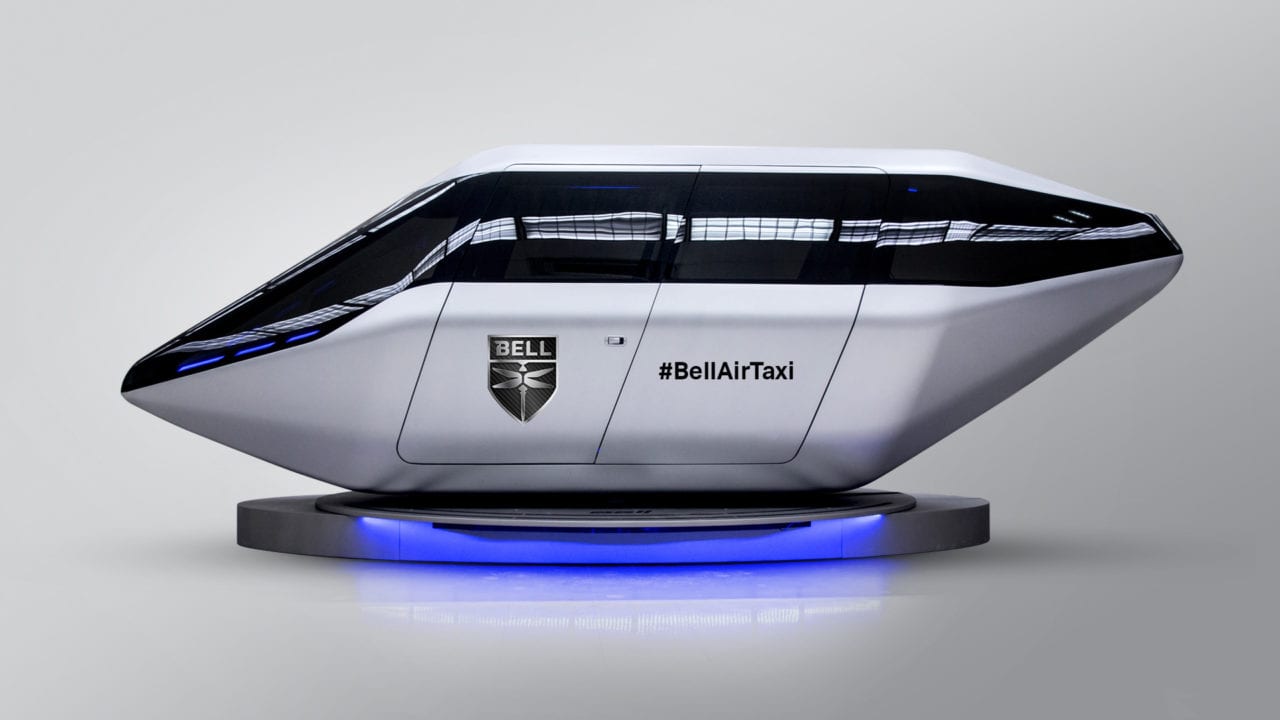
A simulator for Bell’s air taxi concept. Photo courtesy of Bell
Bell has selected Electric Power Systems (EPS) to develop energy storage solutions for its vertical-takeoff-and-landing aircraft project.
The planned on-demand urban mobility aircraft has continued to take shape as Bell periodically announces additional vendors who will contribute to it. The original aim was an electric vehicle on launch, but persistent concerns about battery power density and whether Bell would meet its self-imposed deadline changed that plan. Now it will launch as a hybrid-electric aircraft that will be replaced by fully electric power somewhere down the line. With the stated goal of multi-city testing by 2020 and full operations three years after that, one of the biggest missing puzzle pieces has been the battery maker.
“This collaboration with EPS is intended to further enhance the safety and performance of our aircraft through unique power storage capabilities,” said Bell VP of Innovation Scott Drennan, whose team is heading up the air taxi. “As we forge relationships with new teammates, we move one step closer to bringing viable urban air mobility to the everyday commuter.”
Bell is the prime contractor for the air taxi to be used in Uber’s nationwide Elevate initiative. Interestingly, Uber has said that it would develop battery technology in-house, after poaching former Tesla battery expert Celina Mikolajczak to work for the company. Bell and EPS have not responded to a request for comment about the dynamic between the three companies with the contracting of EPS.
The ultimate goal is to scale up to 1,000 takeoffs per hour from each skyport, which will require changes in FAA regulations. Uber and Bell also want to progress to fully autonomous and fully electric vehicles, saying those three things are all linked, and part of the business case for VTOL on-demand mobility. The companies are, however, bullish on getting things started at the turn of the decade, which will require the current partners and those yet to be revealed have things ready in short order.
“This relationship aligns with our vision as well as Bell’s vision to advance electric aircraft for commercial and military aviation applications,” said EPS CEO Nathan Millecam. “Our energy storage system leverages advanced active battery management technology that enables our battery module to improve life, reduce cost and meet stringent FAA safety requirements.”
Other than EPS, Bell has announced that Garmin would provide the autonomous vehicle management computer systems, Thales the flight control avionics, Safran the hybrid-propulsion systems and Embraer the fly-by-wire capability.